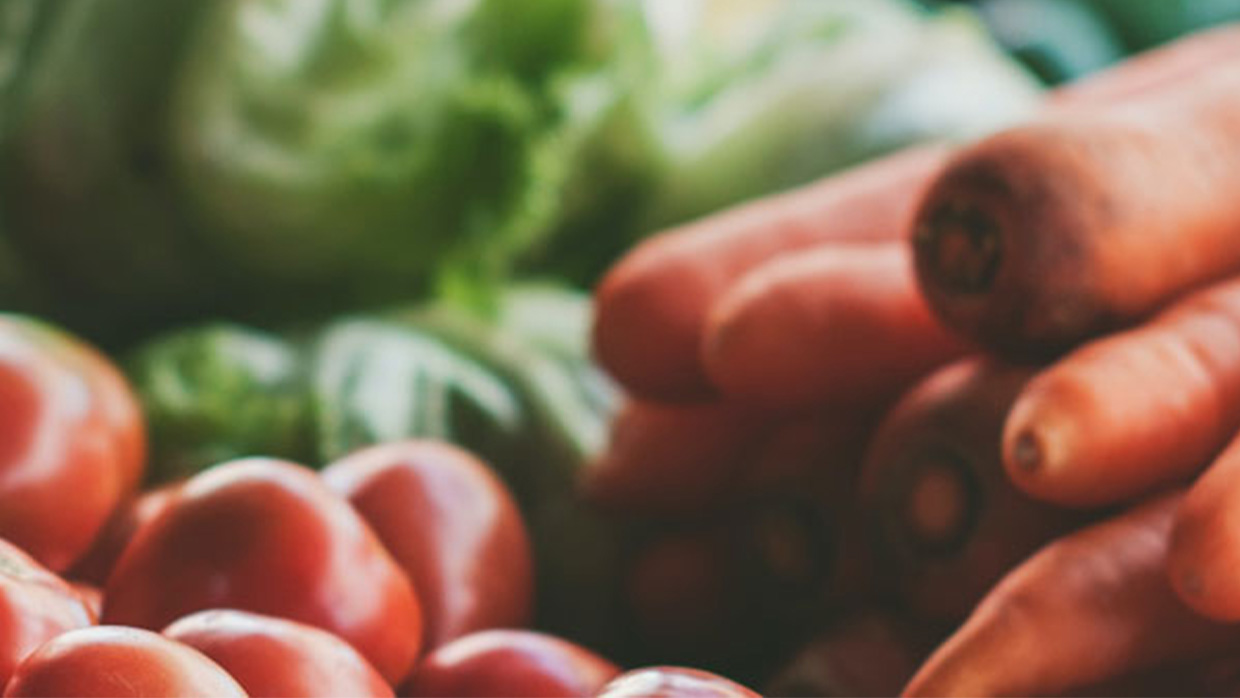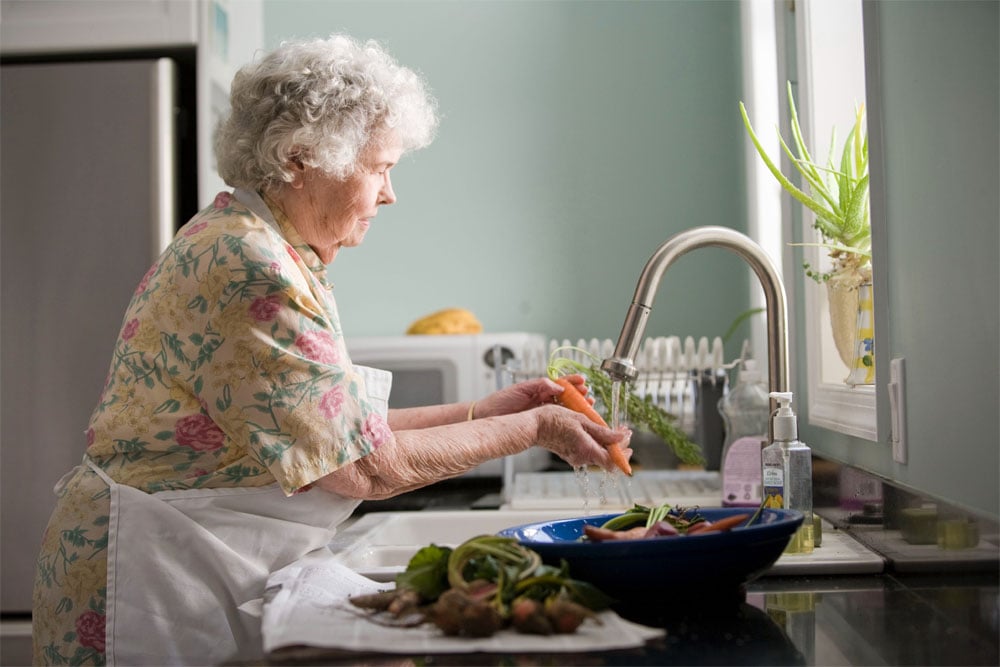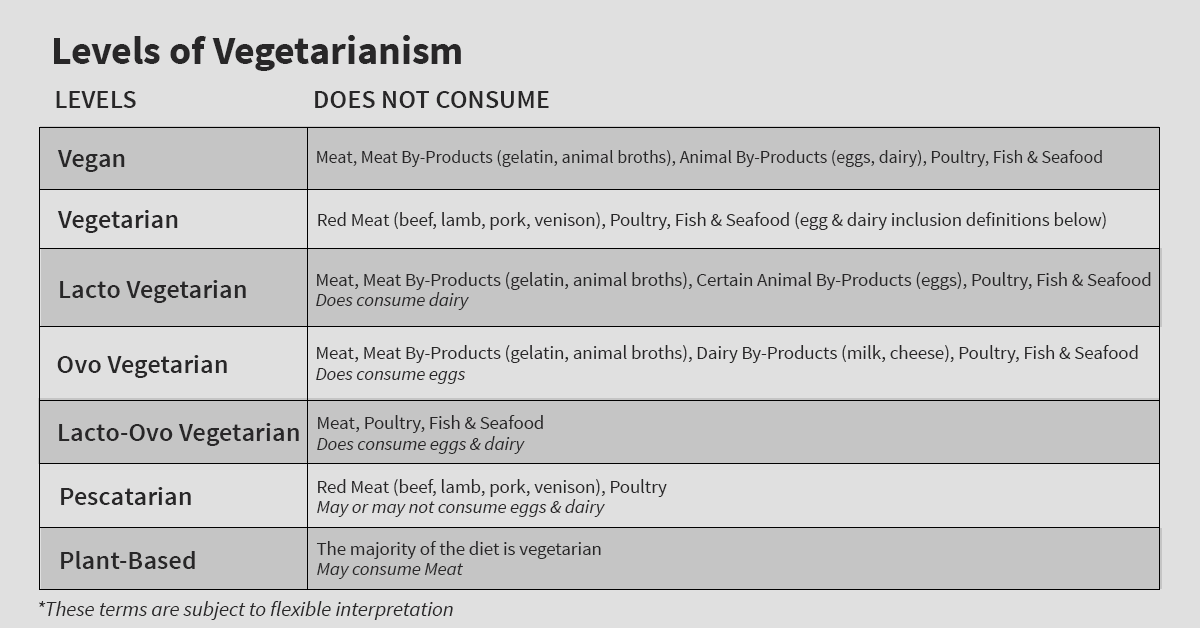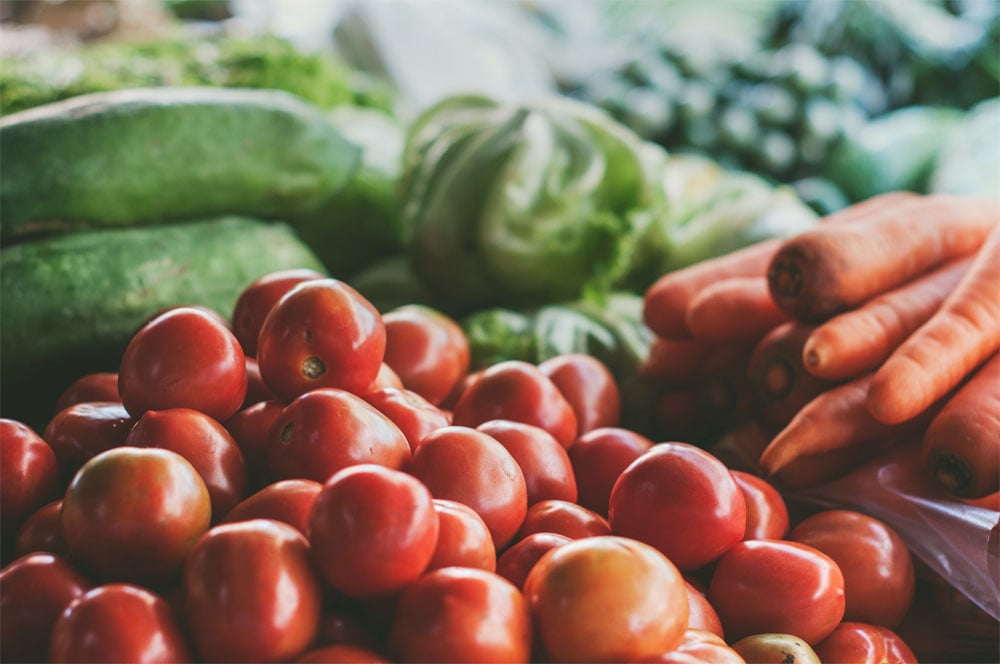Plant Based Diets for Older Adults

Eating more plant foods and less meat can have huge, positive effects on health and well-being—but is it safe and will dietary needs be met by, well, spinach? There’s much more to a plant-based diet than salad, so let’s discuss the ins and outs to assure bone health, strength, and vitamin status stay intact as changes are made.
Though only about 2% of people 65+ in the United States report being vegetarian or vegan, plant-based eating is one of the hottest trends in nutrition right now, with over a quarter of older adults reporting that they’ve been eating less meat in the past year than previously (that’s the highest percentage in any age category!). Nine in ten people reported the reason they’re eating less meat is for their health. Other factors included concerns about the environment and animal welfare, worries about food safety, and the fact that people found eating less meat more convenient.

Vegan, Vegetarian, or Plant-Based?
Let’s start with the terms! Vegan is the “strictest” and excludes all meat, poultry, seafood, eggs, dairy, and even honey (because it comes from bees). Following this kind of diet can have the biggest benefits to health.
Vegetarian is a broader term that could include or exclude fish, eggs, and/or dairy. A vegetarian who eats fish is called a pescatarian. A vegetarian who does not eat fish or dairy but does eat either eggs and/or dairy is called an ovo-vegetarian, lacto-vegetarian, or lacto-ovo vegetarian respectively.
The term plant-based has no official definition, but many people have embraced the diet because of its flexibility. It’s generally accepted that the diet is founded in mostly plants and whole foods but may or may not include small amounts of meat for some people.

Graphic: Move your senior living community forward. Register for Sodexo's free webinar on combating resident social isolation in the era of COVID-19.
Plant-Based for Health
As older adults increasingly decide to cut back on meat and focus on plant-based foods, the research shows that this type of diet supports health and provides a strong incentive for these changes. Close to half of people 65+ have two to three chronic health conditions they’re juggling, so utilizing methods to prevent and manage disease through food is important.
Large, long-term studies have clearly shown that vegetarians and vegans are at reduced risk of many different diseases, especially ones that affect older adults. Specifically, vegetarian and vegan diets lower your risk of developing some types of heart disease, high blood pressure, high “bad” LDL cholesterol, type 2 diabetes, and even certain types of cancer. The overarching reason behind this? Plant-based diets are generally lower in saturated fat and higher in vegetables, fruits, whole grains, beans and lentils, soy foods, nuts, and seeds, all of which provide a wide array of essential nutrients.
Being Safe about Plant-Based Diets
The good news is that vegetarian and vegan diets often have a higher intake of fiber and several vitamins and minerals compared to a standard American diet. To be more specific, there are a few nutrients that older adults should be especially mindful of in their diet—whether it’s vegan, vegetarian, plant-based, or omnivorous. Below is a rundown of nutrients every person 65+ should be thinking about.
Protein
Older adults are at risk of not getting enough protein, but fortunately, it’s easy to maximize your intake on a plant-based diet. Include these foods daily:
- Beans (black, pinto, chickpea, navy, and beyond)
- Lentils
- Nuts (walnuts, pecans, almonds, Brazil, and beyond)
- Seeds (pumpkin, sesame, chia, hemp, flax, and beyond)
- Soy milk (higher in protein than almond, rice, or coconut milk)
- Tempeh (fermented soybeans)
- Tofu
- Whole grains (quinoa, whole wheat pasta, wild rice, oats, and beyond)
Vitamin B12
This is actually the only vitamin that you cannot obtain on a vegan diet since B12 is only found in animal foods like eggs, dairy, fish, or meat. However, recommendations are that all adults over 50 should supplement with B12 to prevent deficiency due to decreased absorption with age. Take the supplement on its own, in a B-complex vitamin, or a multivitamin. A doctor or registered dietitian can answer questions about dosages based on each individual’s unique needs.

Levels of Vegetarianism - Accessible Version

Calcium
Bone health is a major thing to focus on with age, and many Americans aren’t getting enough bone-building nutrients like calcium and vitamin D in their diets. On a plant-based plan though, there are lots of options for calcium. Keep in mind that needs increase with age; men and women 71+ need 1,200 mg of calcium per day. Make sure to get your bone density and vitamin D levels checked, and be sure to include some of these calcium-rich foods daily:
- Broccoli
- Chia seeds
- Fortified non-dairy milks or orange juice
- Kale
- Tofu
Iron
Not eating meat doesn’t mean iron needs can’t be met! Think beyond beef to include more of the following plant foods to ensure enough iron:
- Baked potato with skin
- Beans (white beans, chickpeas, and kidney beans)
- Canned stewed tomatoes
- Green peas
- Lentils
- Raisins
- Spinach
- Tofu

There are more ways than ever to be healthier while eating less meat and more plants. Questions about making the change? Be sure to consult with your registered dietitian. When you learn how to meet your needs with plants, you may start to see some really positive changes.
Graphic: Transform your senior living community to meetthe needs and challenges ahead. Register for Sodexo's free webinar, featuring lessons learned from senior living communities.
References
Melina V, Craig W, Levin S. Position of the academy of nutrition and dietetics: vegetarian diets. Journal of the Academy of Nutrition and Dietetics. 2016;116(12):1970-80.
Mccarthy J, Dekoster S. “Nearly One in Four in US Have Cut Back on Eating Meat,” Gallup, January 27, 2020. Accessed January 27, 2020
Ginger Hultin, “Individualized Diets for Older Adults,” Today’s Geriatric Medicine, May/June 2019, 24. Accessed June 16, 2020.
“Vitamin B12: Fact Sheet for Health Professionals,” National Institutes of Health, updated May 30, 2020. Accessed June 17, 2020.
“Calcium: Fact Sheet for Health Professionals,” National Institutes of Health., updated May 26, 2020. Accessed June 17, 2020.
“Iron: Fact Sheet for Health Professionals,” National Institute of Health, updated February 28, 2020. Accessed June 17, 2020.
